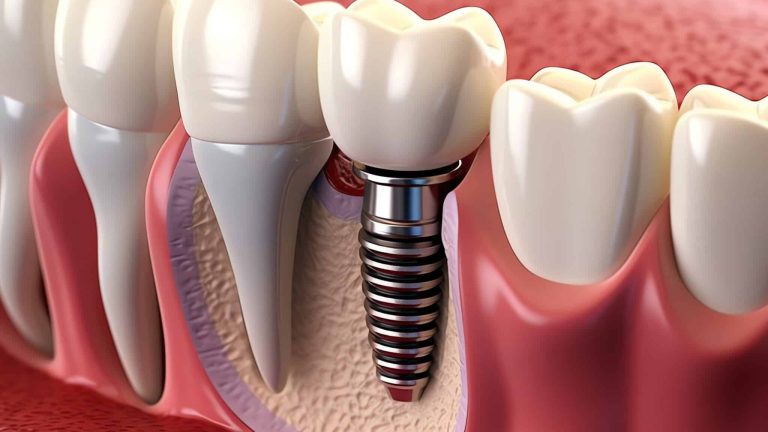Tooth decay is one of the most common health problems in children and can affect both baby teeth and permanent teeth. Although baby teeth are eventually replaced by permanent teeth, their care is essential for healthy oral development. Untreated cavities in children can lead to infections, pain, and problems with chewing and speech, as well as affect the growth and development of permanent teeth.
In this article, we will discuss how to prevent cavities in children with practical tips for parents, ranging from proper oral hygiene and a healthy diet to the use of fluoride and the importance of regular visits to the pediatric dentist.
What is tooth decay and why does it occur in children?

Tooth decay is an infectious disease caused by the interaction of bacteria, primarily Streptococcus mutans, with sugars and starches present in food. These bacteria feed on food residues left on the teeth and produce acids that demineralize the dental enamel, which can lead to the formation of cavities or holes in the teeth.
Children are particularly susceptible to cavities for several reasons:
- High-sugar diet: Children often consume foods high in sugar, such as sweets, juices, and sodas, which are the primary fuel for cavity-causing bacteria.
- Inadequate oral hygiene: Young children are not always able to clean their teeth properly, allowing plaque to accumulate and bacteria to thrive.
- Immature dental enamel: Baby teeth and newly erupted permanent teeth have thinner, less resistant enamel than fully developed adult teeth, making them more vulnerable to cavities.
Importance of preventing cavities in children
Preventing cavities in children not only ensures good oral health but also contributes to their overall well-being. Untreated cavities can cause pain, infections, and problems in future dental development. Additionally, dental health in childhood has a direct impact on children’s confidence and emotional development, as visible dental issues can affect their self-esteem.
Moreover, baby teeth are essential for:
- Proper chewing of food.
- Speech development.
- Maintaining adequate space for permanent teeth.
If a baby tooth is lost prematurely due to decay, nearby teeth can shift and occupy the space meant for the permanent tooth, potentially causing alignment issues and the need for orthodontics in the future.
Practical tips to prevent cavities in children

Here is a comprehensive guide with the best tips to prevent cavities in children. These tips include oral hygiene practices, a healthy diet, the use of fluoride, and the importance of regular visits to the pediatric dentist.
1. Start oral hygiene from birth
Oral hygiene should begin even before the baby’s first tooth erupts. From birth, it’s important to clean the baby’s gums with a soft, damp gauze or clean cloth to remove milk or formula residues. This helps establish a healthy routine and reduces bacterial buildup in the mouth.
Once the first tooth has erupted (usually around six months of age), it is crucial to start brushing the baby’s teeth twice a day. Use a soft-bristled infant toothbrush and a small amount of fluoride toothpaste (about the size of a grain of rice).
2. Encourage a good brushing and flossing routine
As the child grows, it is important for them to learn to brush their teeth on their own. However, children under 7 generally do not have the manual dexterity to brush effectively, so parents should supervise and assist with brushing.
Tips for good brushing:
- Use a toothbrush suitable for the child’s age, with soft bristles.
- Apply a pea-sized amount of fluoride toothpaste (for children over 3 years old).
- Brush all tooth surfaces, including the gums, for at least two minutes.
- Replace the toothbrush every three months or sooner if the bristles are worn.
Flossing is also essential, especially when teeth start to touch. Parents should teach their children to use floss gently to remove food particles between teeth and prevent plaque buildup.
3. Limit sugar and cariogenic foods
A healthy diet plays a crucial role in cavity prevention. Foods and drinks high in sugars are the main culprits of cavities in children. Bacteria in the mouth use sugar to produce acids that attack dental enamel.
Tips for a healthy diet:
- Limit the intake of sweets, sodas, sugary juices, and processed foods high in sugars.
- Encourage the consumption of fruits, vegetables, proteins, and whole foods that contribute to optimal oral health.
- Choose calcium-rich foods, like dairy products, that strengthen teeth.
- Limit sugary snacks between meals and opt for healthy options like fresh fruits, carrots, or nuts.
An important aspect is to reduce the time teeth are exposed to sugars. When children frequently consume sweets or sugary drinks, their teeth are continuously exposed to acids produced by bacteria. Limiting sugar intake to main meals and avoiding constant snacking helps reduce this risk.
4. Use fluoride toothpaste
Fluoride is a natural mineral that strengthens dental enamel and makes it more resistant to acid attacks produced by bacteria. Regular use of fluoride toothpaste has been shown to significantly reduce the incidence of cavities in children.
From the first tooth, a small amount of fluoride toothpaste should be used (the size of a grain of rice for younger children and a pea-sized amount for older children). Additionally, other fluoride products, such as mouthwashes and fluoride varnishes, can be applied by the pediatric dentist for extra protection.
5. Consider the application of dental sealants
Dental sealants are an excellent preventive option for children, especially on permanent molars, which are more prone to cavities due to their rough surfaces and deep grooves. A dental sealant is a thin layer of material applied to the chewing surface of teeth, creating a barrier that protects the enamel from bacteria and acids.
Applying dental sealants is a quick, painless, and highly effective procedure. Pediatric dentists often recommend sealants for the first permanent molars, which erupt around age 6, and for the second molars that erupt around age 12.
6. Regular visits to the pediatric dentist
Regular visits to the pediatric dentist are essential to maintain good oral health in children and prevent cavities. It is recommended that children visit the dentist for the first time when their first tooth appears or around their first birthday. After this initial visit, check-ups should be at least twice a year.
During visits, the pediatric dentist will perform a professional cleaning to remove accumulated plaque and tartar that cannot be eliminated with regular brushing. These visits also allow for early detection of cavities and the application of preventive treatments, such as fluoride varnishes or dental sealants.
Visits to the pediatric dentist are also an excellent opportunity for parents to learn about proper dental care for their children and for children to become familiar with the office environment, reducing fear or anxiety associated with dental visits.
7. Avoid prolonged use of the bottle and pacifier
Prolonged use of the bottle, especially when filled with sugary liquids like milk, juice, or formula, can cause what is known as bottle decay. This type of cavity primarily affects the upper front teeth and can develop when children use the bottle overnight or keep it in their mouth for long periods.
To prevent bottle decay:
- Never let the child fall asleep with a bottle filled with sugary liquids.
- Start introducing training cups around 6 months and try to eliminate bottle use before 12-18 months.
- Make sure to clean the baby’s teeth after each feeding, especially before putting them to bed.
8. Teach good habits from an early age
Developing good oral hygiene habits from an early age is key to preventing cavities in children. Parents should be role models, showing the importance of brushing after each meal, using dental floss, and visiting the dentist regularly.
Make brushing a fun activity for children by using colorful toothbrushes, songs, or games that motivate them to take care of their teeth. Also, teach them why it’s important to avoid sugary foods and choose healthier alternatives.
Conclusion
Preventing cavities in children requires a combination of good oral hygiene, a healthy diet, proper fluoride use, and regular visits to the pediatric dentist. By following these practical tips, parents can ensure that their children maintain a healthy smile from their early years through adulthood.
At Clínicas La Guardia, we offer specialized pediatric dentistry services to guide parents in every step of their children’s dental care. From professional cleanings and fluoride applications to sealant placement, we are here to help prevent cavities and keep your child’s smile healthy and bright. Don’t hesitate to contact us for a consultation or more information on how to care for your child’s teeth.




